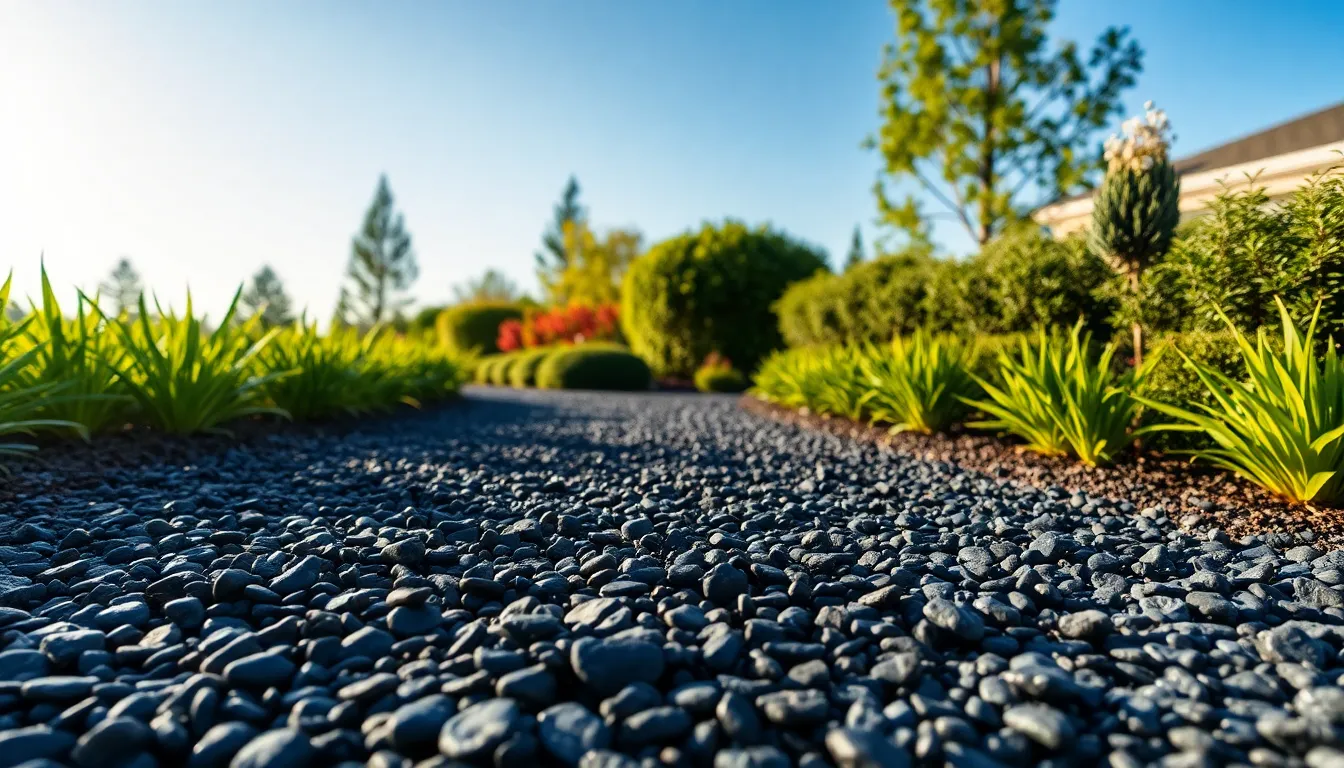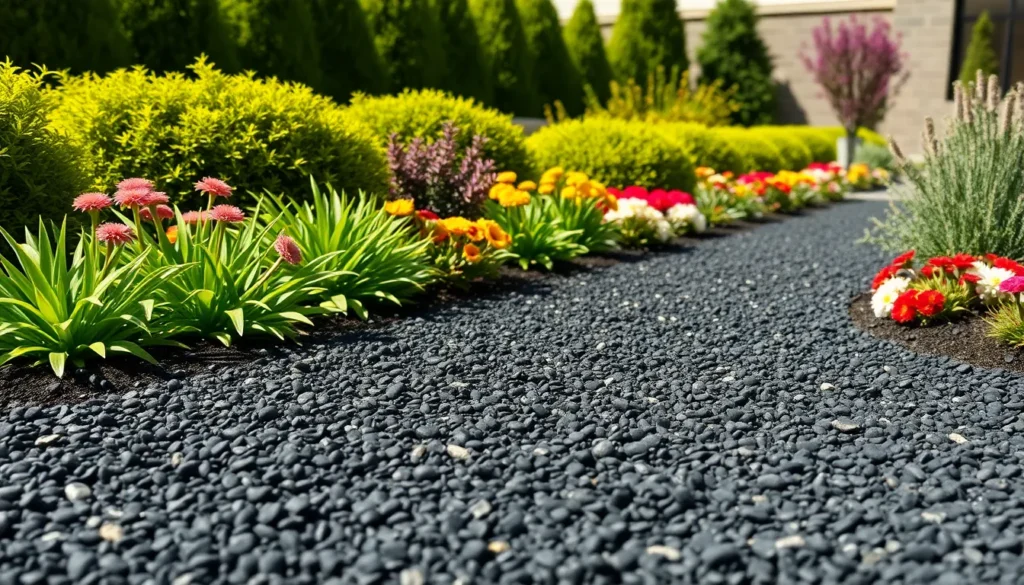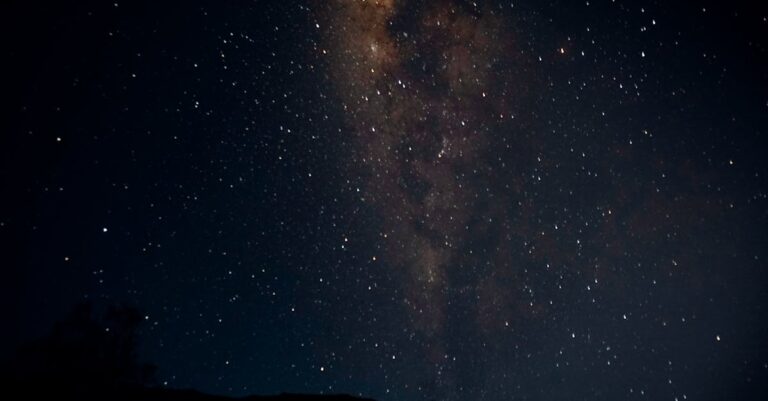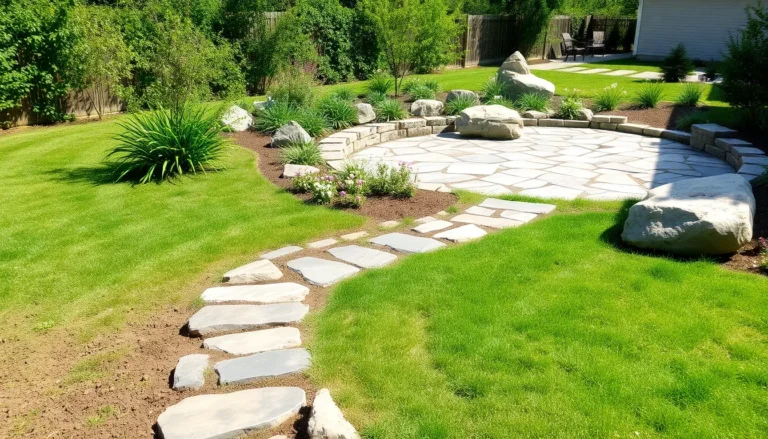Table of Contents
ToggleBlack gravel is not just your average landscaping material: it’s the chic, stylish choice that instantly elevates any outdoor space. Think of it as the little black dress of your garden, bold, versatile, and oh-so-classy. In a world full of mundane mulch and lackluster stones, black gravel shines brighter than a star on its best night. Stick around, because we’re about to dig deep into why you should consider this striking option for your landscaping projects. Trust us, it’s worth the gravel-ly journey.
What Is Black Gravel?

Black gravel refers to small, rounded stones primarily composed of basalt or granite that have been crushed and screened to achieve a uniform size, typically ranging from 1/4 inch to 1 inch. These stones come in various shades of black, often with subtle hints of gray or shiny flecks that catch the light beautifully. Unlike your run-of-the-mill landscaping materials, this gravel packs quite a punch in visual appeal. It serves as an attractive mulch while providing practical benefits for garden beds, walkways, and driveways alike.
Benefits Of Using Black Gravel In Landscaping
Using black gravel in landscaping comes with a myriad of benefits. To start off, it creates a striking contrast against the vibrant greens of plants and flowers, enhancing the overall aesthetics of your garden. Also, its dark color helps retain heat, allowing certain plants to thrive even in cooler temperatures. Black gravel is also an excellent drainage solution: it allows water to flow freely without pooling, preventing soil erosion and keeping your plants healthy. Plus, maintenance is a breeze: unlike wood mulch, black gravel doesn’t decompose, saving you from frequent replacements. And let’s not forget the eco-friendly aspect, quarried materials often have a smaller carbon footprint than other landscaping options.
Types Of Black Gravel Available
When it comes to types, black gravel is far from one-size-fits-all. There is the classic black basalt gravel, known for its deep black tones and smooth texture, perfect for creating a sophisticated look. Then there’s lava rock, which has a more rugged appearance and excellent drainage properties. Another option is crushed granite, which offers a varied look with darker flecks amidst lighter grays for an interesting texture. Each type serves different aesthetic and functional purposes, catering to a range of landscaping needs.
How To Use Black Gravel In Your Landscape
Incorporating black gravel into landscaping can be as straightforward as 1-2-3. First, consider using it as a base layer for pathways. It provides stability and makes walking effortless, not to mention it looks fantastic when framed by edging. Second, use it around garden beds: its dark hue effectively suppresses weeds and regulates soil temperature. For a modern look, it pairs beautifully with large, flat stones to create a sleek, open feel. And don’t overlook using black gravel in water features. It works wonders as a decorative element, enhancing the serenity of ponds or fountains.
Maintenance Tips For Black Gravel Landscapes
Maintaining a black gravel landscape is not as daunting as it may sound. Regular raking will help keep the gravel level and free from debris: think of it as a spa day for your garden. If some areas start to show signs of shifting, simply replenish with fresh gravel as needed. Another tip is to keep an eye on surrounding plants. Some plants might try to invade the gravel with roots or debris. A quick trim here and there will prevent any unsightly patches and keep everything looking pristine.
Cost Considerations When Choosing Black Gravel
Cost is an important factor when contemplating landscaping, and black gravel is no exception. Generally, the price of black gravel ranges depending on factors like type and location. Expect to pay anywhere from $30 to $100 per ton. While it may seem pricier than mulch, its durability and low maintenance make it a sound long-term investment. Plus, consider the local availability: sourcing gravel nearby can save on transportation costs, which can add up quickly.




